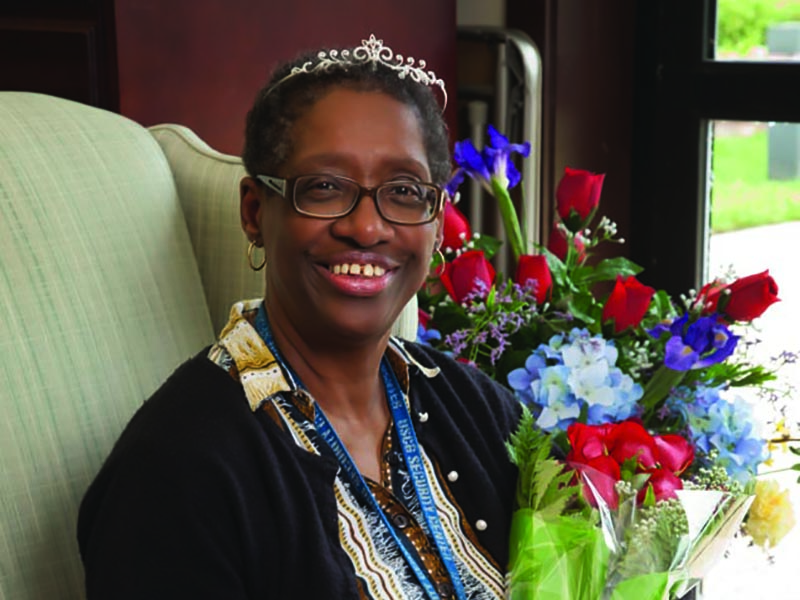Surprisingly, Queenie Wellman-Swinton and Pecolia Coppedge don’t know each other.
Not only did they both join the ranks of Riverside Health System within days of each other in 1963, but earlier this summer, both also made health system history, marking a total century of service to the Virginia Peninsula community.
Wellman-Swinton and Coppedge are the first Riverside team members to work for the company for 50 years.
Why? Both cited a love for helping people and a passion to serve for keeping them inspired to come in to work each day.
“Riverside has been extremely fortunate to have Queenie and Pecolia as team members at two of our facilities for 50 years each,” says Sally Hartman, a senior vice president with Riverside. “They are daily role models of our mission of caring for others as we would care for those we love and an inspiration to all of their fellow team members.”
As soon as she graduated from high school, Queenie Wellman-Swinton came to work for Riverside Health System, then the Patrick Henry Hospital for the Chronically Ill. Over the years she’s worked as an aide—dispensing medicine, admitting people and helping patients.
Today, she works as a unit secretary overseeing multiple units and making sure they run smoothly. She isn’t directly caring for patients, but she knows she’s taking care of things so that people can be taken care of at The Gardens at Warwick Forest, a continuing care retirement community on the Newport News and York County border.
“My mother told me to treat patients just like they were my family,” Wellman-Swinton says. “I will never forget one patient I had, who’d had a stroke and was a quadriplegic, and I would go in to bathe her and I would sing. She would have tears running down her face. I just put myself in her place; that could be me or my mother.”
The biggest change Wellman-Swinton has seen in the last 50 years of health care? While patient care remains essentially the same, technology has changed a lot about her job.
Where she used to write out medication records for five floors a day, by hand, and delivering medication on trays with cups labeled with the patient’s name, today, the medication process is computerized and identification is done with bar code scanners and wristbands.
Wellman-Swinton has no immediate plans to retire.
“I wake up feeling good enough to get up and come help patients. I think about these patients and they need assistance. They need love and care and respect, and they deserve it.”
Pecolia Coppedge came to work at Riverside Hospital in 1963, at the recommendation of a friend. Through the years, she’s moved and worked up and down the different floors of the Riverside Regional Medical Center.
East. West. Hematology, oncology, intensive care; as a nurse’s aide who enjoys taking care of patients and meeting nice people, Coppedge has always been willing to go where she’s needed.
Coppedge was 20 when she started and over the years has watched health care change, including the increase in technology and the length of time people stay in the hospital.
“At night, after visiting hours were over, we would take around the juice cart to offer patients drinks, and offer backrubs to people who were bedridden,” Coppedge says. “Patients were there longer and so we knew their personalities better. But, one of the reasons they were there longer was that there wasn’t any laser surgery, everyone had incisions that took a while to heal.”
The one thing that has stayed the same, year after year for 50 years, Coppedge says, is that “taking care of people is at the heart of it. If you aren’t willing to do all of it, to wait on people and to listen to them, this isn’t the career for you.”
Coppedge plans to retire this fall.
My mother told me to treat patients just like they were my family.
“I hope I made a difference, that I was able to make someone more comfortable, and to help them heal,” Coppedge says. “And for the ones who didn’t heal, I hope that I was a comfort and a blessing to them.”

